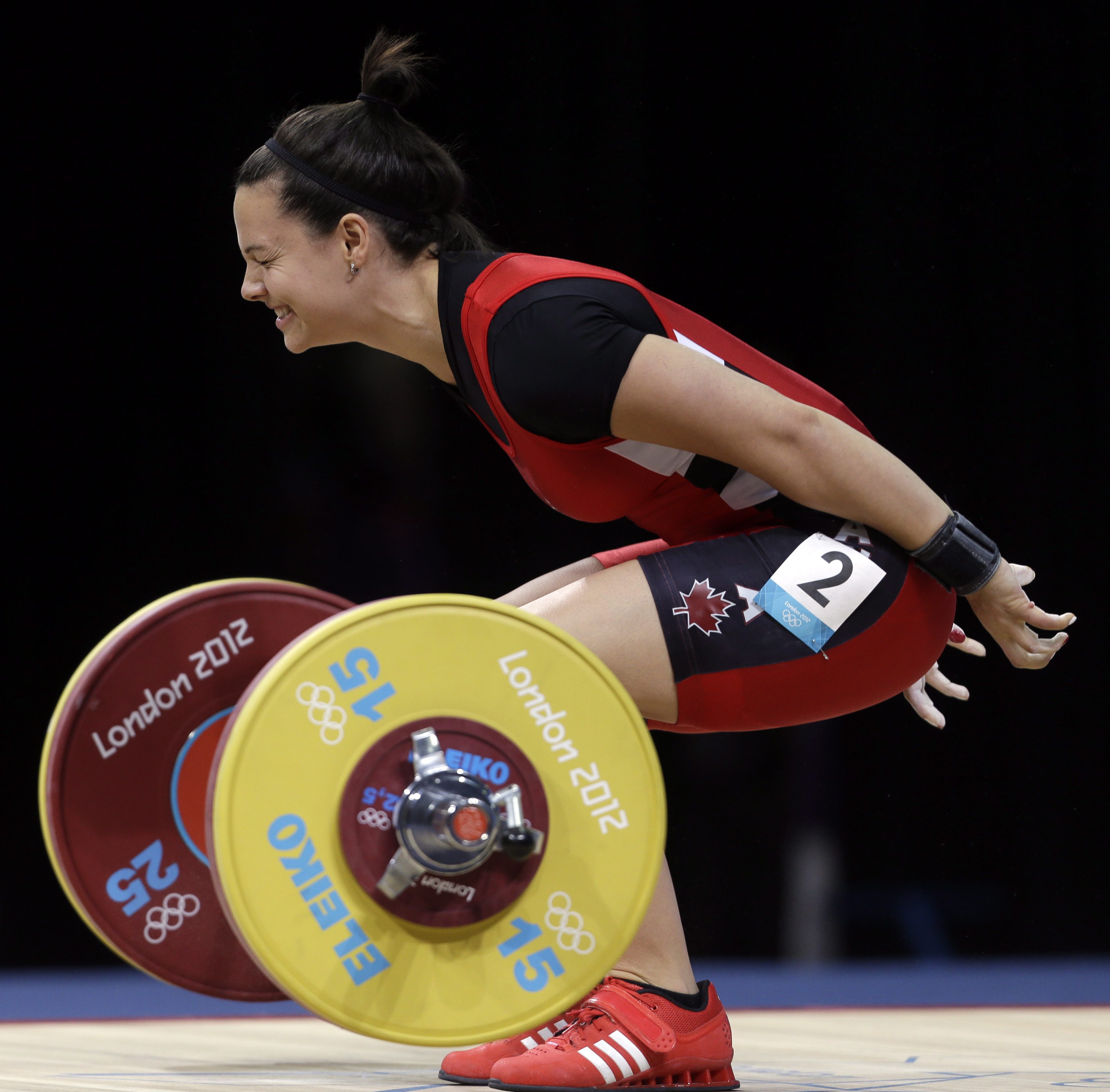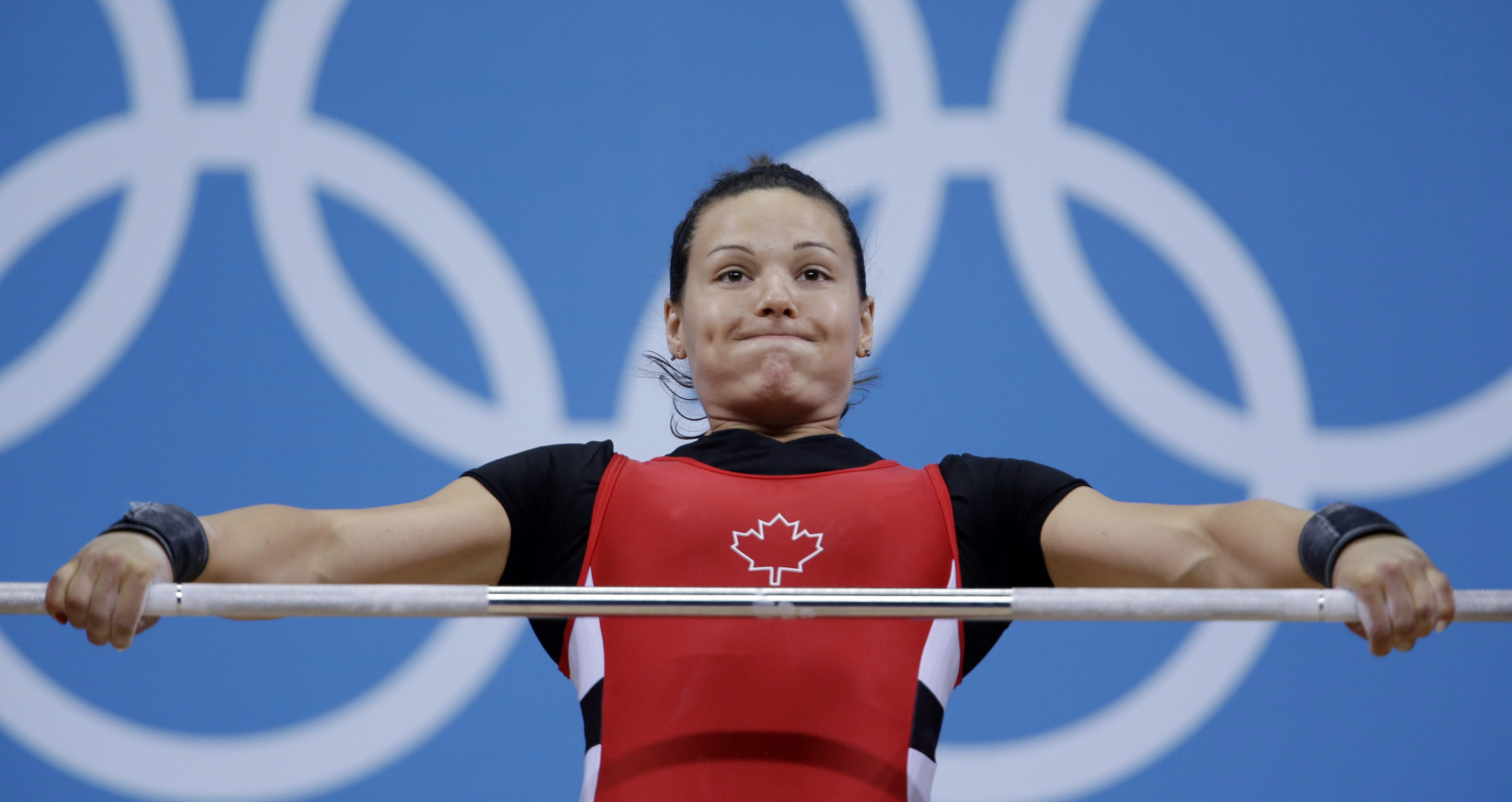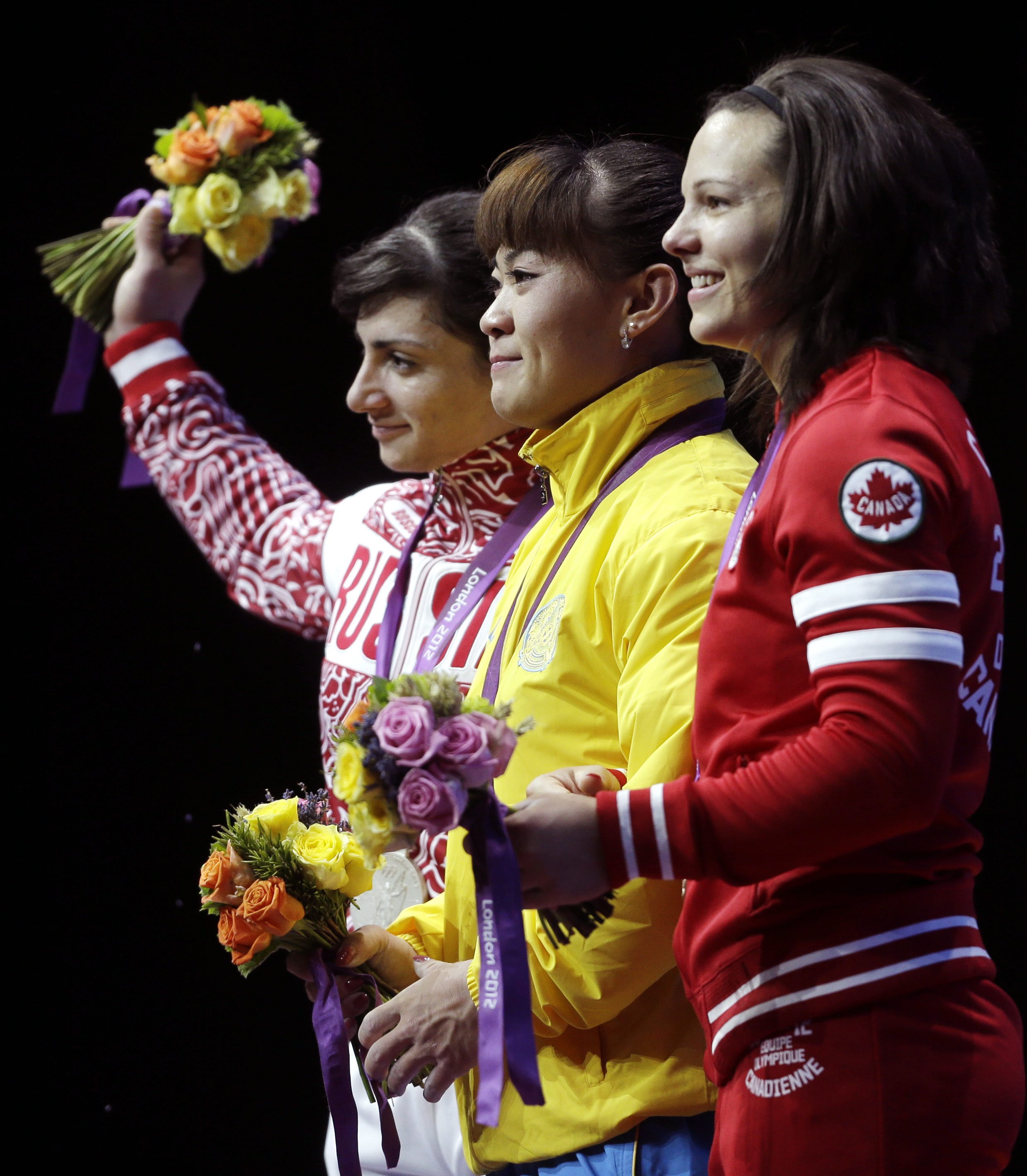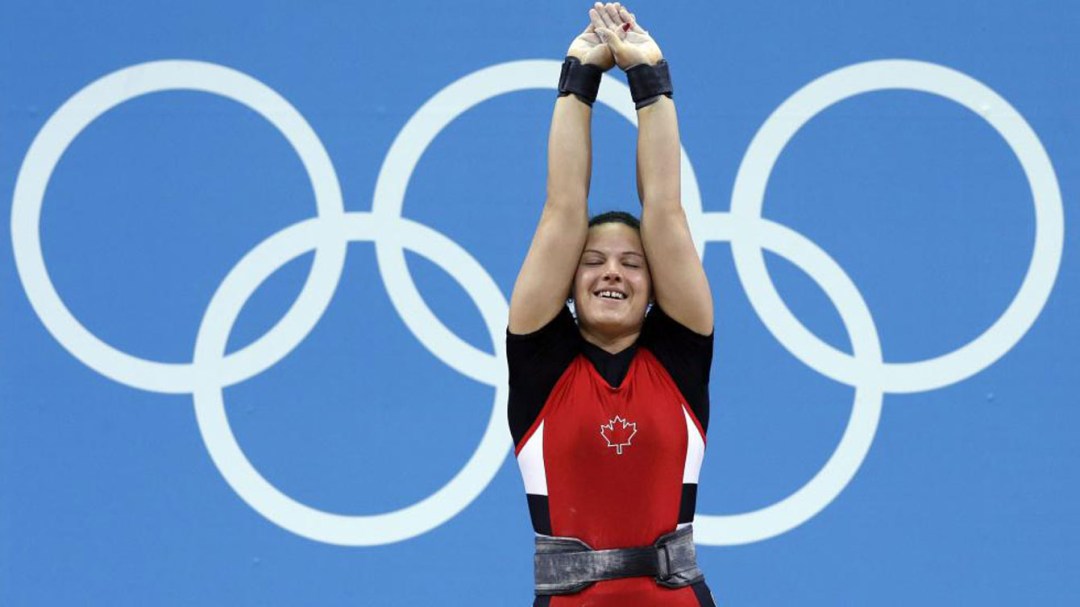“Thrilled” Christine Girard reacts to becoming Olympic champion
“It’s really easy to get lost in the what ifs and I have never been that girl so I try to stay away from that.”
In an alternate reality, Christine Girard was Canada’s first medallist at Beijing 2008. Instead of a week-long drought to start the Games, Canadians would have been celebrating her bronze on Day 4.
A gold medal four years later at London 2012 would have made her a national hero, one of Canada’s two Olympic champions crowned at the Games, the country’s most successful weightlifter ever.

Christine Girard of Canada competes during the women’s 63kg weightlifting competition at the 2012 Summer Olympics, Tuesday, July 31, 2012, in London. (AP Photo/Mike Groll)
But that isn’t her reality.
Instead, she’s been riding a roller coaster of conflicting emotions for the last couple of years – excitement and frustration, happiness and bitterness – grappling with the knowledge that she missed out on everything that should come with being a two-time Olympic medallist.
RELATED: Christine Girard to be awarded London 2012 weightlifting gold
Because it wasn’t until a comprehensive re-testing of stored samples from both Beijing and London led to the retroactive disqualification of three athletes who had placed ahead of her for doping that she was moved up to the ranking that was rightfully hers. The news of her being officially upgraded to the gold medal from London 2012 comes more than a year after the last of the disqualifications was handed down.

Christine Girard of Canada competes during the women’s 63-kg, group A, weightlifting competition at the 2012 Summer Olympics, Tuesday, July 31, 2012, in London. (AP Photo/Hassan Ammar)
“I’m thrilled that I will get those medals,” Girard told Olympic.ca just after the final disqualification that stood between her and Olympic gold. “I’m really happy and I think it’s great for my sport. It’s great for me obviously. It’s great for Canada but at the same time there’s always a little bitter taste in the fact that I shouldn’t have had the life I had for four years and I should have had the gold medal right away. Everything would have been so different.”
“When I came back from Beijing people were telling me, because I was fourth, ‘well you know you’re almost good, don’t give up you’re almost good’. It was really hard for me but now this fourth turns to third and now I will be third and first so I feel like I understand better what athletes go through. I know the difference between having a medal and not having medal, what it means to the world.”

Christine Girard stands on the podium at London 2012 with Maiya Maneza of Kazakhstan, centre, and Svetlana Tsarukaeva of Russia, left, both of whom were disqualified from the women’s 63kg weightlifting event for doping infractions. (AP Photo/Mike Groll)
Over the last year, the more negative feelings about what she has gone through dissipated as she started to see her story through different eyes. She attended a conference hosted by the Institute of National Anti-Doping Organizations, surrounded by people who spend their lives fighting doping, which helped her gain a new perspective.
“I’m pretty proud of the athlete I was, probably more now than I was before because I understand differently what it means now,” she said after receiving the news that the gold medal would officially be hers.
Girard also channeled her emotions into the writing of a book about her life between her two Olympic appearances. It was started in the fall of 2016 when she could find time between taking care of her two children – Philip and Alianna – and coaching more than a dozen lifters at the club she started. The book De la défaite à la victoire was published in French last month – on the heels of the birth of her third child, Samuel – and will be available in English in a few months.
She’s also had to figure out what finally receiving her medals six and 10 years after the fact will mean. A special ceremony will be arranged where she’d like to follow the example set by cross-country skier Beckie Scott, with whom she’s had email exchanges and was also bumped up from Olympic bronze to gold due to doping infractions.
“She said she felt like she received the medal, not just for herself, but it was bigger and more meaningful for everybody around and I think that’s what I want to do too,” Girard said. “To make people proud that we are Canadian, that we have those values, that we can win in fair play and that we are true to ourselves and I think that’s where I’ll get my joy.”

Christine Girard of Canada competes during the women’s 63kg weightlifting competition at the 2012 Summer Olympics, Tuesday, July 31, 2012, in London. (AP Photo/Hassan Ammar)
Girard acknowledges that her sport is one that has always had trouble with doping but she would like to be a shining example for those coming up, especially young women.
“Not that long ago, even in Canada, people thought that it was impossible for a girl to snatch a hundred kilos without taking drugs. Well I showed it. My sample has been tested I am sure many times. It always came clean.”
“I met some lifters that got discouraged because of other countries taking drugs and always feeling that they were behind because of it,” she continued. “It took me 18 years to get on the podium in the Olympics but it was still worth it just to show people that it is possible, so I really hope that’s the message that will be associated to my name, that if we work really hard and we stay at it and we keep going then it is possible.”




